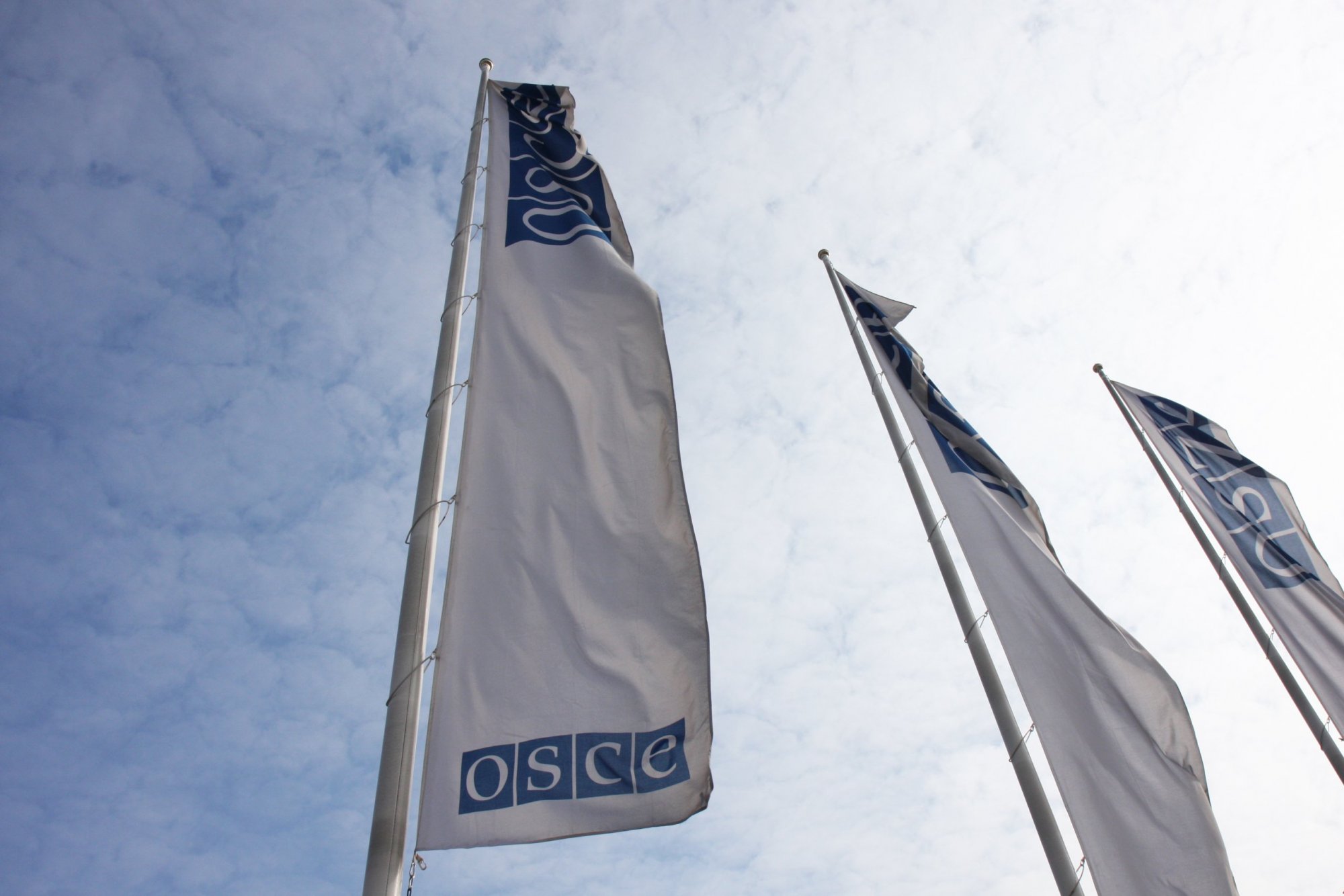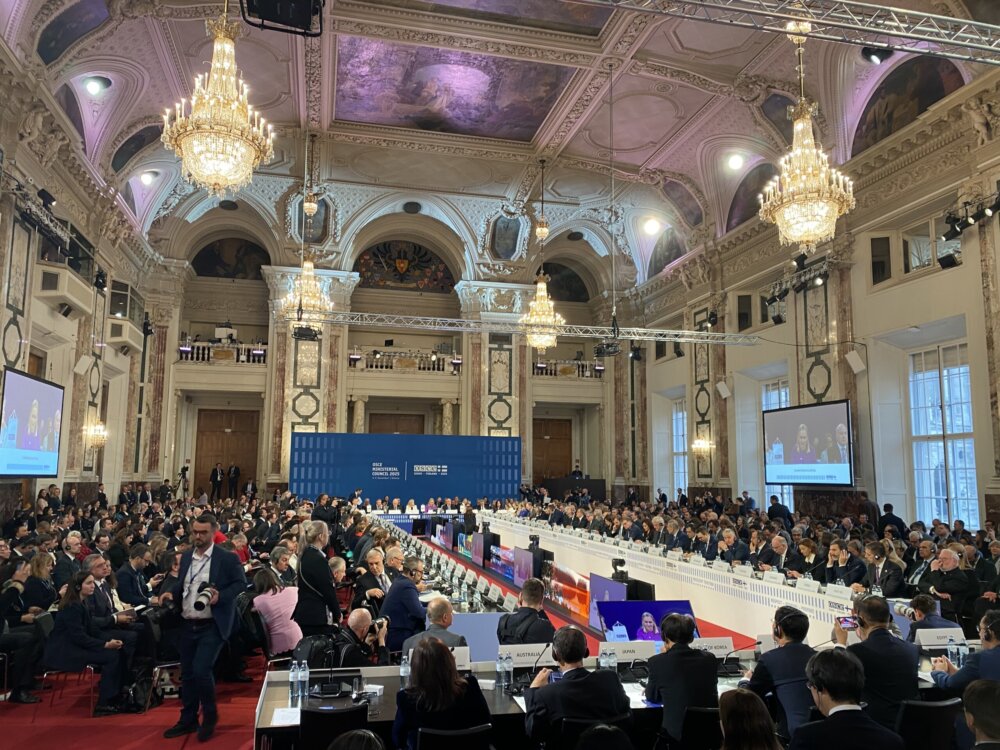OSCE/Sarah Crozier

Russia suspends its participation in the OSCE Parliamentary Assembly
Earlier this month, Russian lawmakers voted to suspend Moscow’s participation in the Parliamentary Assembly (PA) of the OSCE, accusing the body of “double standards and total Russophobia.”
In a statement, both chambers of the Federal Assembly of the Russian Federation accused the OSCE PA of depriving Russia “under spurious pretexts, of the opportunity to continue dialog and to participate fully and equally in the work of the plenary sessions and governing bodies of the OSCE PA.”
In their statement, the Russian lawmakers criticized the fact that they have been denied visas to attend the 2022 PA sessions in Birmingham and Warsaw, the 2023 PA session in Vancouver as well as the 2024 PA session in Bucharest.
Austria last year was among the very few countries to provide Russian lawmakers with visas to attend an annual meeting of the OSCE PA in Vienna, causing controversy at the time. Austria stressed that it was legally obliged to issue the visas given its host country agreement with the OSCE.
“The non-admission of the Russian delegation to these events predetermined the adoption of the only possible decision to suspend payments to the OSCE PA budget. This suspension has been used to deprive the members of the Russian delegation of the right to vote, thus excluding representatives of our country from participation in decision-making,” the Russian statement read.
The statement concludes that therefore it is considered “reasonable and legitimate to suspend the participation of the delegation of the Federal Assembly of the Russian Federation in the OSCE PA as well as the payment of the contributions of the Russian Federation to the OSCE PA budget.”
A spokesperson of the OSCE PA said that “Russian parliamentarians have not regularly participated in OSCE PA meetings since the full-scale invasion of Ukraine in February 2022, nor have they paid their dues over two full fiscal years, so the self-suspension announced on July 3 changes very little in practical terms for the Assembly.”
In order to rejoin the OSCE PA with full benefits, Russia would have to pay its outstanding dues, the spokesperson added. This would also restore the voting rights.
According to internal OSCE PA documents seen and reviewed by SHR Monitor, Russia’s annual contribution amounts to 6% of the Assembly’s total budget. The spokesperson for the OSCE PA said that Russia’s total outstanding contributions amount to just over 500.000 Euros.
The President of the OSCE PA Finnish lawmaker Pia Kauma wrote a letter to Pyotr Tolstoy, the Deputy Chairman of the Russian State Duma and Head of the delegation of Russia to the OSCE PA, in which she acknowledged the Russian “self-suspension” of July 3.
In her July 12 letter, seen by SHR Monitor, Kauma wrote that “the decision to issue visas for delegates to enter a country in order to attend a meeting of the OSCE PA is solely the prerogative of the host country.” She added that the OSCE PA does not have any “authority to influence these sovereign decisions.”
Kauma noted that Russian lawmakers in the past had declined to participate in OSCE PA meetings at which they were invited and added: “You should therefore not be surprised that many of the countries generously hosting OSCE PA statutory meetings frequently decline the visa applications of Russian delegates.”
She also said that the OSCE PA has documented “the clear, gross, and still uncorrected violations of the Helsinki Final Act” that Russia has committed in Ukraine, including the recent attack against the Ohmatdyt Children’s Hospital in Kyiv.
Kauma also addressed the Russian move to suspend its participation in the work of the OSCE PA in more detail in her letter.
She wrote: “I must clarify that the OSCE PA Rules of Procedures do not permit a unilateral abstention from the Assembly. Consequently, the OSCE PA International Secretariat will continue to send you all documents to your delegation, including the invoice for your annual financial contribution.”
One source close to the PA said that the Russian self-suspension is “unknown territory” since there are no rules in place for such a move. “The most honest interpretation is that they remain a member but have decided not to participate in the activities of the Assembly,” the source said.
The OSCE PA does not have decision-making power but it adopts non-binding resolutions, declarations and recommendations, including at its recent meeting in Bucharest. It is a separate OSCE body that aims to facilitate inter-parliamentary dialogue among its members to advance the goals of the OSCE.



Comments
* Your email address will not be published